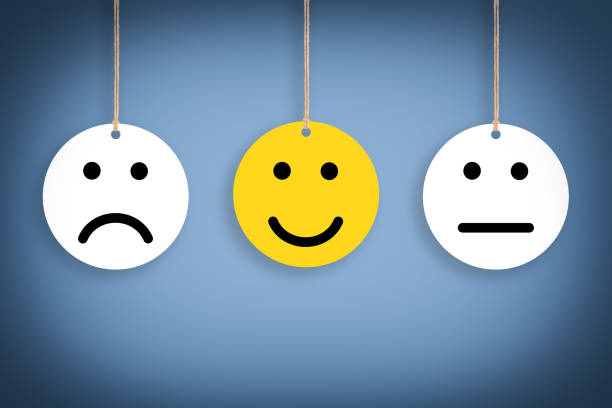We’re on an emotional roller-coaster:
I was so excited to get my second vaccine, this month. Finally, I thought, life can start opening up again. And then I started hearing about how the Delta-plus variant has been infecting fully-vaccinated people and my happiness dissolved.
It turns out that this new “variant of a variant” is extremely infectious and can penetrate the defenses of people with supposed full immunity. So far, the infections are mostly mild or asymptomatic, but it’s entirely possible that an eventual variant, let’s call it “Delta double-plus,” could take on a more deadly form. Knowing what I do about viruses, and the way they mutate, this scenario is not so far-fetched.
Thinking about the possibility of a “double-plus” variant makes me kind of nervous, and it takes me from a post-vaccine high to a new emotional low. But this see-saw of emotions has been a common experience for me, throughout the pandemic.
There’s been bad news, then a bit of good news, followed by more bad news, then some good news, and then even more bad news. I feel like we’ve all been on an emotional roller-coaster, equivalent to a ride on the Yukon Striker in Canada’s Wonderland.
Resilience has its limits:
Human beings are generally pretty resilient. We’re usually quite adept at handling stress, as long as too much of it doesn’t pile up all at once. One thing that really helps us deal with stressful situations is having enough time to adjust to a new situation.
When a situation is as rapidly changing as this pandemic, we’re deprived of this adjustment time and we start to feel overwhelmed.
I’n sure I’m not the only one experiencing an emotional roller-coaster these days. I have a sense that many people will be experiencing a new wave of mental stress triggered by the Delta-plus variant.
I’m not alone in feeling the a high of being fully-vaccinated, or the only one delighted to hear about an earlier re-opening in Ontario, so I’m sure I won’t be the only one feeling super-bummed-out by the news of this new variant, either. We could all be plunged to a new low.
Being a psychiatrist and someone who has spent decades practicing good self-care, I’m fairly confident that I’ll cope well enough with this latest disappointment, but what about the average person who doesn’t have as much experience in managing stress?
Constantly changing news can be enormously stressful. The ups and downs of the current news cycle give us no time to emotionally process or adjust to all the changes in our situation.
When the emotional roller-coaster is combined with the other stresses of the pandemic, such as social isolation, insecurity and loss, it can lead to something called a stress disorder.
One common stress-related condition is what’s known as an adjustment disorder. Typically, it involves a dysfunctional reaction to a highly stressful situation.
Adjustment disorder:
Symptoms of an adjustment disorder could include irritability, poor sleep, fatigue, a disrupted appetite, a lack of interest in our usual activities, or feeling unable to cope with even minimal stress.
It can involve an inability to make decisions, a lack of enjoyment, withdrawing from other people, poor concentration and “brain fog,” and even the urge to self-sooth in counterproductive ways, with overeating, excessive alcohol intake or drug use.
Another dysfunctional coping strategy to extreme stress is denial. It comes from the unwillingness to accept an unpleasant reality because it feels overwhelming.
People in denial about the risks of the new variants will go and socialize inappropriately, putting themselves and their loved ones at risk for becoming ill or dying.
Some of these individuals are engaging in denial because they feel that they just can’t take anymore bad news. They convince themselves that everything is fine. They have the two vaccinations, so they tell themselves that they’re indestructible; the variants aren’t important; life is back to normal — it just has to be!
Denial or dread:
I understand what these people are going through. It’s incredibly difficult to have our hopes raised and then dashed, over and over again. Some people, however, experience the opposite of denial. after taking in so much bad news they go into a constant state of dread.
For these individuals, once they’ve had so many of their highs dashed, they’re no longer able to enjoy the better times because they don’t trust that these times will last. That means that these people can never actually relax and feel safe or comfortable. They’re always on edge, waiting for the next axe to drop.
The emotional toll of being on a roller-coaster:
Our governments and public health departments have been pretty good at sharing information on how to take care of our physical well-being but they haven’t been so good at helping us address our emotional well-being. No-one has been talking about the toll taken by the repeating cycle of good news, bad news, good news, and more bad news.
It’s so important right now to recognize if you’re feeling overwhelmed, angry, absent-minded or apathetic, or if you’ve been turning to addictive behaviours to self-soothe.
Help is available and you shouldn’t feel embarrassed to reach out. These are unbelievably stressful times; made even more so by the constantly shifting sands under our feet.
Try to prioritize your emotional self-care and feel free to speak to a friend, a counselor, or a member of the clergy to help you cope with the mental stress that the new Delta-plus variant is causing you, and everyone around you. Don’t suffer in silence!
Resources:
The phone number for the Distress Centres of Greater Toronto is: 416-408-4357. The Canadian Mental Health Association — CMHA — toll-free number is 1-800-875-6213, or you could go online to info(@)Ontario.cmha.ca
____
Sign up here for my free biweekly wellness newsletter that brings you fresh, thought-provoking content.
Subscribe to my YouTube Channel where you’ll learn simple tips for taking the best care of yourself and your loved ones.
Tune in to my Ruthless Compassion Podcast where I go in-depth about topics like mental health, trauma, and loneliness.






